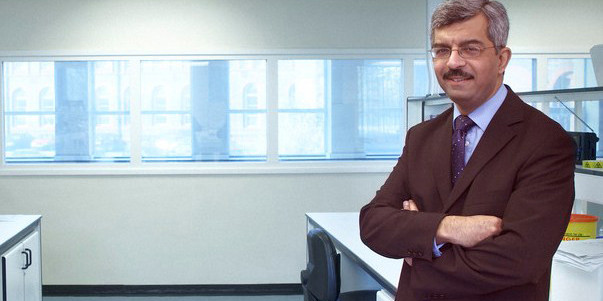Innovative plan for Liverpool’s health economy
An innovative plan has been developed by the Local Enterprise Partnership (LEP), the North West Coast Academic Health Science Network (NWC AHSN) and Liverpool Health Partners (LHP) to enable the Liverpool City Region (LCR) to become the fastest place in the UK to develop and commercialise quality research in precision medicine.
And with LHP as lead delivery partner, a report entitled Liverpool Precision in Medicine (PRiME) has now been published with LHP Executive Director, Professor Sir Munir Pirmohamed describing it as a ‘coherent, deliverable action plan until 2020 that identifies LCR’s assets in precision medicine.’
Liverpool City Region is already at the heart of the Government’s Health North initiative, which aims to unlock the potential of the north in partnership with life sciences minister George Freeman.
Sir Munir Pirmohamed said:
“Liverpool City Region itself serves a population of more than half a million people and includes some of the highest levels of deprivation and poverty across the country. Some of our mortality rates are 76% higher than the European average. Liverpool City Region is also commonly referred to as the cancer capital of Europe so we believe this plan will be widely welcomed. However, it is not just a plan. We’ve been working collaboratively with industry for more than 10 years now.
“For example, we partnered LGC in a European funded study to improve warfarin dosing and patient benefit. The recently completed study showed that dosing according to a patient’s genes was more accurate than the current standard dosing approach used in NHS hospitals.
“LGC has also developed rapid point-of-use genetic testing technology for the police and that same capability has now been adapted to deliver the genetic testing required for improving warfarin dosing.”
Paul Debenham from LGC points out:
“We are now actively working with the team in Liverpool to implement this genotype-guided dosing using the point-of-care genotyping instrumentation.”
Sir Munir Pirmohamed continues:
“We also have an excellent working relationship with MC Diagnostics, an SME, based in St Asaph, North Wales. Their goal was to develop a simple, automated process, which would render currently complicated and expensive methods of molecular diagnostics usable in routine laboratories. The first target for the company was to develop an automated method for tissue typing, which is required to match donor and recipient in transplants. A four year development process led to a range of tissue typing products, which all function under exactly the same test conditions to enable them to be run together on the processing instrument which was developed at the same time.
“Commercialization of their system began in 2010 by licensing the system and the tissue typing products to BAG healthcare, a company already active in this marketplace.”
Peter Maguire of MC Diagnostics explained:
“The beauty of the platform makes it well suited to precision medicine applications. Given a set of markers to allow distinction between individuals, it is straightforward to design new products to work on the platform to provide the specific information required. 2015 saw the beginning of a collaboration with the University of Liverpool and Bangor University on a project to predict individuals which might be at risk of developing serious adverse reactions to a number of prescribed drugs.
“MC Diagnostics believes that as more and more markers for precision medicine are discovered, that we are in the position to make the routine analysis of those markers into a simple and cost effective process.”
For more information on the plan visit http://www.liverpoolhealthpartners.org.uk


